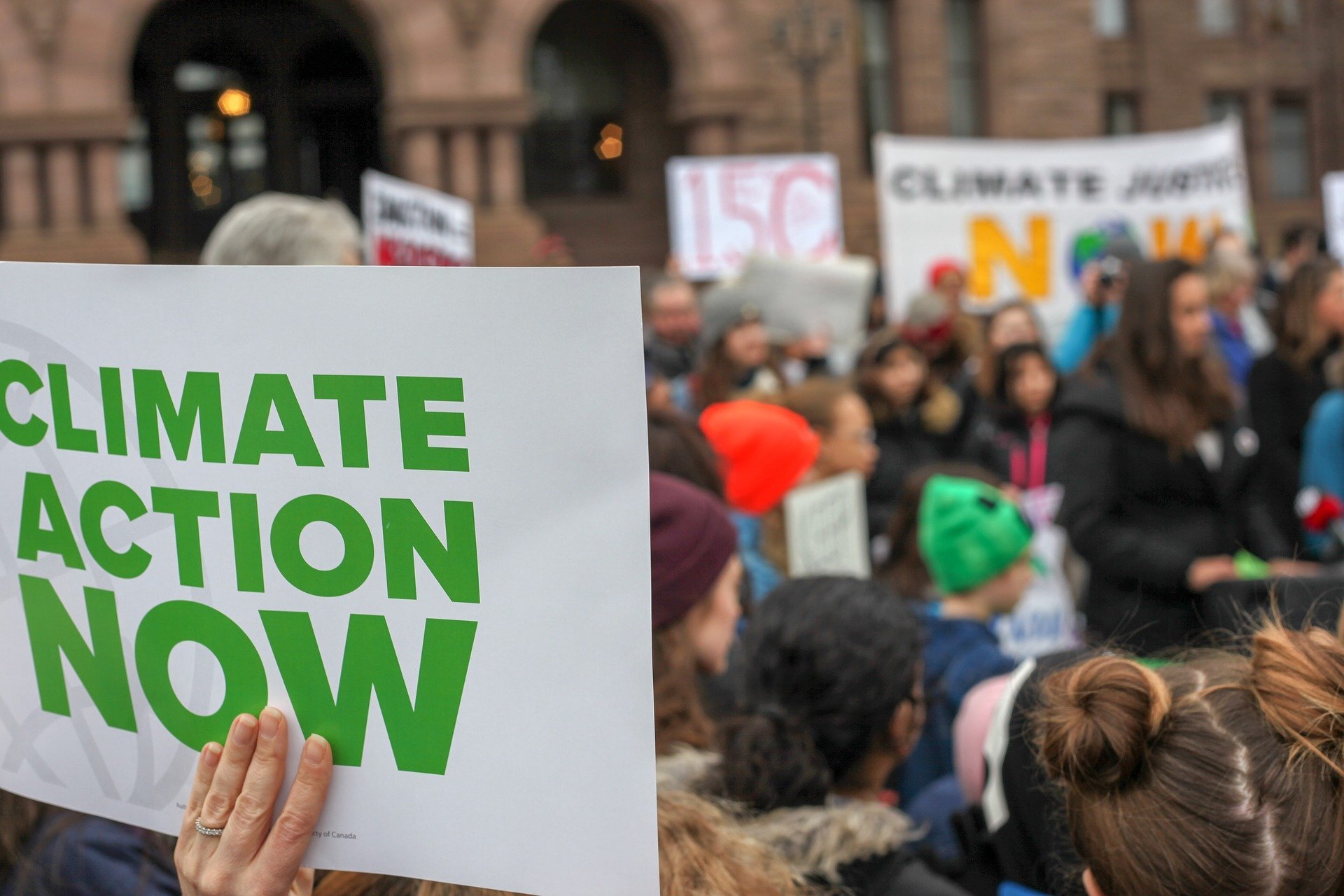
Climate Crisis – Not Climate Change
After a long consideration, we have decided that we will no longer refer to the ongoing climate emergency as “Climate Change” and will instead hereon refer to it as “Climate Crisis”.
While this might seem like a small and insignificant change to some, it is an important step in recognising the severity of the situation that we find ourselves in, and how imperative urgent and meaningful action is to avert this crisis that affects us all.
The term “Climate Change” refers to this situation as an ongoing process of change, and creates the idea that this is something that we can get to in due course, and which will only affect us in the future – when we know that the climate crisis is already all around us, and is the effect of over 60 years’ worth of delayed action.
While this reflects that multi-billion dollar organisations like Exxon Mobile have risked both human and planetary health by actively suppressing scientific data on the climate crisis since the 1960s, it also acknowledges the lack of action by governments today – as well as the rapid rise of greenwashing amongst many businesses.
A fantastic case-in-point is the Irish Climate Bill 2020, which uses incredibly vague language such as “pursing” carbon neutrality rather than “delivering” or “exceeding” targets. This Bill has, in many instances, undermined the Climate Case Ireland judgement, which legally proved both the lack of action and intent from the Irish government on the climate crisis.
They have now launched a petition to revise the Bill and establish both more meaningful and more proactive targets that the government will be legally bound to deliver. You can support this movement by signing the petition here, and using #FixTheBill on social media.
Graph showing the long-term increase of average temperatures in Ireland between 1901-2019. Credit: Prof Ed Hawkins
Climate Crisis
As with so many things, Greta Thunberg put it most succinctly: “I want you to panic”
As such, we will now use the term “Climate Crisis” to refer to rapid and far-reaching change in the life systems on Earth and in our atmosphere.
To reiterate that this is, indeed, a very real, very present crisis – please find below some essential facts about the climate crisis that demonstrate the need for urgent and meaningful action from governments, brands and us all alike:
1,300 people die prematurely in the Ireland due to air pollution each year – these are entirely avoidable deaths. This figure rises to 500,000 across the EU each year, and XX million people worldwide per annum
Carbon dioxide levels are now at a level that has not been seen for over 3 million years – at that time, global sea levels were 53 feet higher than today
Global energy consumption has grown by 2,677% between 1800-2019, while the global average per capita energy consumption increased by 45% just between 1970-2014. Both this rate of consumption, as well as the emissions from power generation, are unsustainable
By 26th April 2021, Ireland will hit Earth Overshoot Day – the day upon which Ireland exceeds what the entire Earth’s ecosystems can renew in a year. Every day after 26th April we are using up resources that we can never replace, while accumulating carbon dioxide in the atmosphere that the planet cannot capture or offset
By 2019, the global average temperature was 1.1⁰C higher than the pre-industrial period
2019 was also the second hottest year on record
Average wildlife populations have dropped by 60% in just over 40 years, according to the Living Planet Report
68% of all extreme weather events in the last 20 years were made more likely or severe by the human-induced Climate Crisis
Climate Action
Remember that we know how to fix the Climate Crisis – the solutions are already in our hands and where technology is required, we have all of it ready to go:
Reduced consumption of goods, resources and energy – without this there will be no progress
Transitioning power generation and consumption from fossil fuels to only use energy from renewable sources
Reducing emissions from the transport sector by reducing the number of vehicles on the road, electrifying those vehicles that remain, and redesigning cities to ensure more people are able to travel on foot, by bike and using public transport
Reducing air travel to an absolute minimum – while enacting strict emissions targets and consequences for failing to meet international regulations
Reducing emissions from the agriculture industry by reducing meat production and consumption and refining ecologically-harmful practices
Reducing oil consumption – for everything from fossil fuels, to plastics
De-commodifying nature – by moving away from the idea of “natural resources” and instead reducing the consumption of natural products that cannot be replenished or which are made vulnerable by our demands
Re-wilding nature – by restoring forests, re-wetting bogs and re-enriching soils
Holding corporations accountable for ecocide and emissions across borders – while closing loopholes on greenwashing and carbon offsetting where emissions are not being reduced
Recognising the value of climate action – while removing capitalism as the predominant culture, instead moving to a system that better recognises the importance of ecology while demoting the need for constant consumption and capital growth
So what happens if we as individuals, as consumers and as nations do not take the necessary steps to hit the 2028 deadline?
In short, the world as we know it will change radically in an incredibly short space of time.
At present we are on course to hit a minimum of 2⁰C warming between 2030-2040, at which point we will see major crop failures alongside the arctic becoming entirely free of ice, resulting in rising sea levels that will cause extensive floods.

